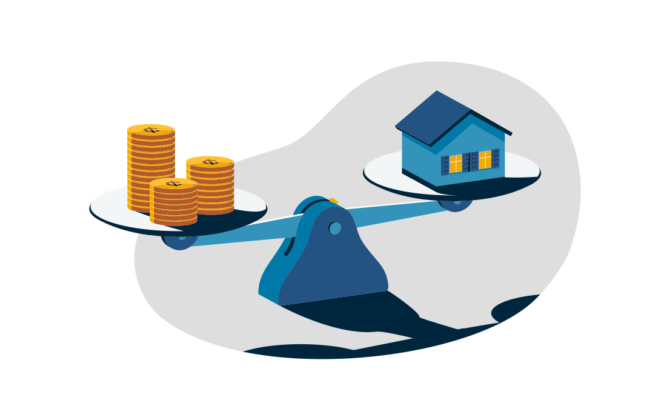If you’re one of the many who carry various debts or a heavy overall debt load, consolidation is one of the most consequential actions you can take to get control of your debt and attack it head on.
Consolidating credit card debt through a personal loan rolls your old debts into a single new debt. When used responsibly, it can help lift you out of your current debt and untether you from the high interest rate (such as a rising variable rate loan) you might be paying.
Don’t bite just yet – evaluate your options.
You’d be smart to assess your credit score and current financial standing before even approaching the idea of getting a Personal Loan. If you have a strong enough credit score and can handle a fixed monthly payment, lenders (such as Laurel Road) can typically offer you a more attractive rate on a personal loan than other options. So, if you have a good score, a relatively low debt-to -income ratio, and your accounts are in good standing, you may be able to snag a new low interest rate that could save you in the long run. You might even improve your credit score—if you’re able to manage the debt responsibly.
You also may have seen the option to open a balance transfer credit card (alongside some seemingly unimaginable 0% interest rate offer) and been tempted to learn more. Here’s what you should consider when choosing between a personal loan and a balance transfer:
- Debt type flexibility: Balance transfer cards often have restrictions on the type of the debt you can move to the card, whereas most personal loans allow you to consolidate many different types of debt.
- Amount of interest: If you can pay off debt quickly, e.g. before the intro period ends, a balance transfer card might be a smart choice. If you can’t, you’ll incur the card’s standard APR (a whopping 7.99%-36.00%, typically). Personal loans generally have lower APRs (ours fall between 8.99% and 24.25%[1], depending on your credit profile and income).
- Fees: Balance transfer cards often charge a fee of 3-5% of the amount transferred. Some also have annual fees. Some lenders may charge origination and closing fees or prepayment penalties (Hint: we don’t), so do your homework.
- Effect on your credit: Applying for both requires a hard check which could lower your score, temporarily (usually 1 year). On the flip side, if you consolidate credit card debt into a personal loan, you could boost your score by having more debt diversity. A personal loan could also reduce your ratio of balance to limit on revolving credit.
- Discipline: Again, if you think you’ll be disciplined in your payment plan and can get your debt paid off before the introductory period ends, a balance transfer card could be the best choice. Otherwise, consider a personal loan that offers a consistent, reasonable interest rate that you’ll be able to afford over the long-term.
That about sums it up. Still unsure? Check out our guide to personal loans, here.




